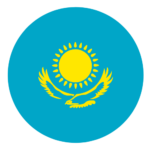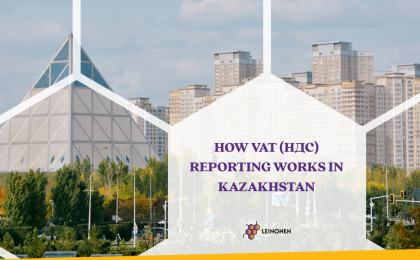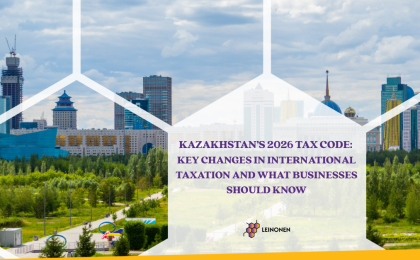The Astana Hub International Technopark of IT startups has emerged as a thriving hub for innovation and technological advancement, attracting both local and foreign IT companies. In 2022, the hub welcomed 200 foreign IT companies, pushing the total number of residents to an impressive 1,000. These resident companies collectively generated an annual revenue exceeding 200 billion tenge (US$426.5 million). Notably, the majority of the resident companies (800 out of 1,000) are Kazakh, with a strong presence in international markets, including North America and Southeast Asia.
Training and Developing IT Specialists
Astana Hub has embraced its role in nurturing the next generation of IT specialists. This aligns with President Kassym-Jomart Tokayev’s directive to cultivate at least 100,000 highly skilled IT professionals by 2025. This commitment to talent development ensures a steady supply of skilled workers for the growing IT industry in Kazakhstan.
Accounting Practices: A Key Component
For IT companies operating within Astana Hub, maintaining precise and transparent accounting practices is paramount. The hub operates under a preferential tax regime, necessitating specific accounting procedures distinct from those applied to regular companies. In particular, compliance with international financial reporting standards (IFRS) is indispensable for accurate financial record-keeping.
Laws and Regulations: Tax Preferences
Astana Hub participants enjoy a range of tax benefits under Kazakhstan’s tax laws. These incentives cover various aspects of taxation, including corporate income tax, value-added tax (VAT), individual income tax, and more.
Some of the key tax preferences offered to Astana Hub participants are:
- Corporate income tax – paragraph 4-3 of Article 293 of the Code of the Republic of Kazakhstan “On taxes and other obligatory payments to the budget” No. 120-VI dated December 25, 2017 (hereinafter referred to as the TC RK);
- Value Added Tax (hereinafter referred to as VAT) – p. 45), 46) Article 394 of the Tax Code of the Republic of Kazakhstan;
- VAT on on particular imported goods – article 399.1.17) of the Tax Code, Order of the Minister of Digital Development, Defense and Aerospace Industry of the Republic of Kazakhstan dated March 18, 2019 No. 10/NC), except for the EAEU countries;
- VAT on the purchase of works, and services from a non-resident – subparagraph 3) paragraph 2 of article 373 of the Tax Code of the Republic of Kazakhstan;
- Individual income tax on salary of Astana Hub participants’ employees that are residents – article 341.1.50) of the Tax Code;
- income from capital gains – article 288.2.11) of the Tax Code;
- income of a non-resident from a source in the Republic of Kazakhstan – subparagraphs 3-1 of paragraph 2 of Art. 644 Tax Code of the Republic of Kazakhstan;
- Royalty tax – article 644.2.4-1) of the Tax Code;
- dividends for non-residents – taxation at a rate of 5% -article 646.3 of the Tax Code;
- Social tax for foreign employees – article 484.3.3) of the Tax Code
Common Accounting Practices
To navigate these tax preferences effectively, IT companies in Astana Hub are advised to employ qualified professionals proficient in IFRS and tax return preparation. Additionally, internal audits are often conducted to ensure compliance and identify any potential issues, further emphasizing the importance of robust accounting practices.
Companies interested in operating within Astana Hub must apply for membership in the technopark. This membership grants access to the benefits and resources provided by the hub, including the tax preferences outlined in Kazakhstan’s tax laws.
Accountant Perspective and Salary Information
Handling accounting and payroll in Astana Hub can be intricate due to the unique tax preferences and special conditions in place. This requires professionals with a deep understanding of tax laws and financial regulations to effectively manage these cases. Their expertise is crucial for maintaining compliance and maximizing the benefits of the preferential tax regime.
For professionals considering a career in the IT sector within Astana Hub, it’s important to note that salary levels in Kazakhstan can vary based on roles, skills, and experience.
Generally:
- junior developers earn around 1000 euros per month,
- middle-level developers earn between 2000-2500 euros per month,
- and senior developers can earn 4000 euros and above.
The Astana Hub International Technopark of IT startups in Kazakhstan stands as a testament to the country’s commitment to fostering innovation and technological progress. The preferential tax regime provides a substantial incentive for IT companies to operate within the hub, but vast accounting practices and adherence to IFRS standards are imperative for success. With the right expertise and a thorough understanding of tax regulations, IT companies can thrive within this dynamic technological ecosystem.





